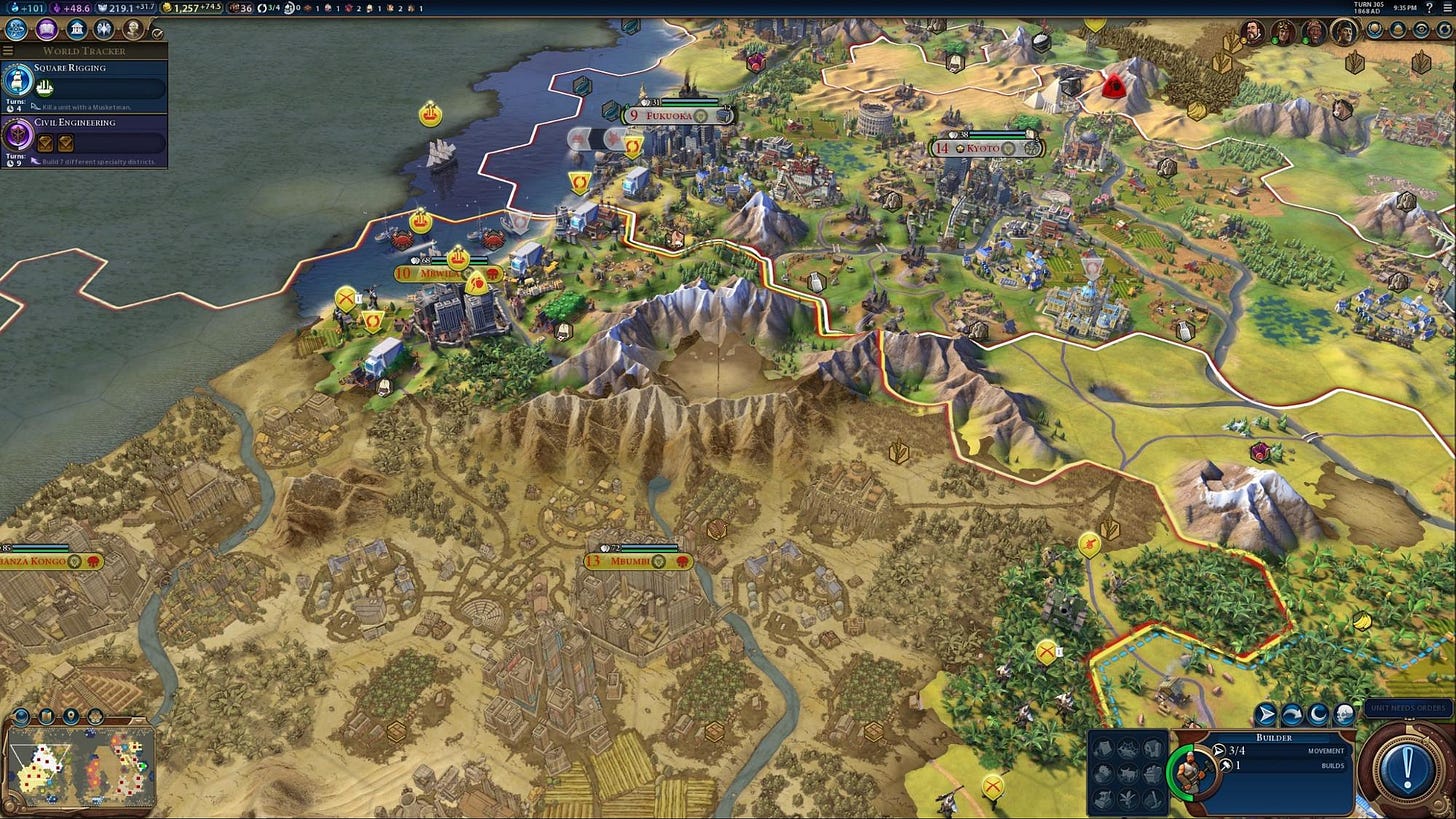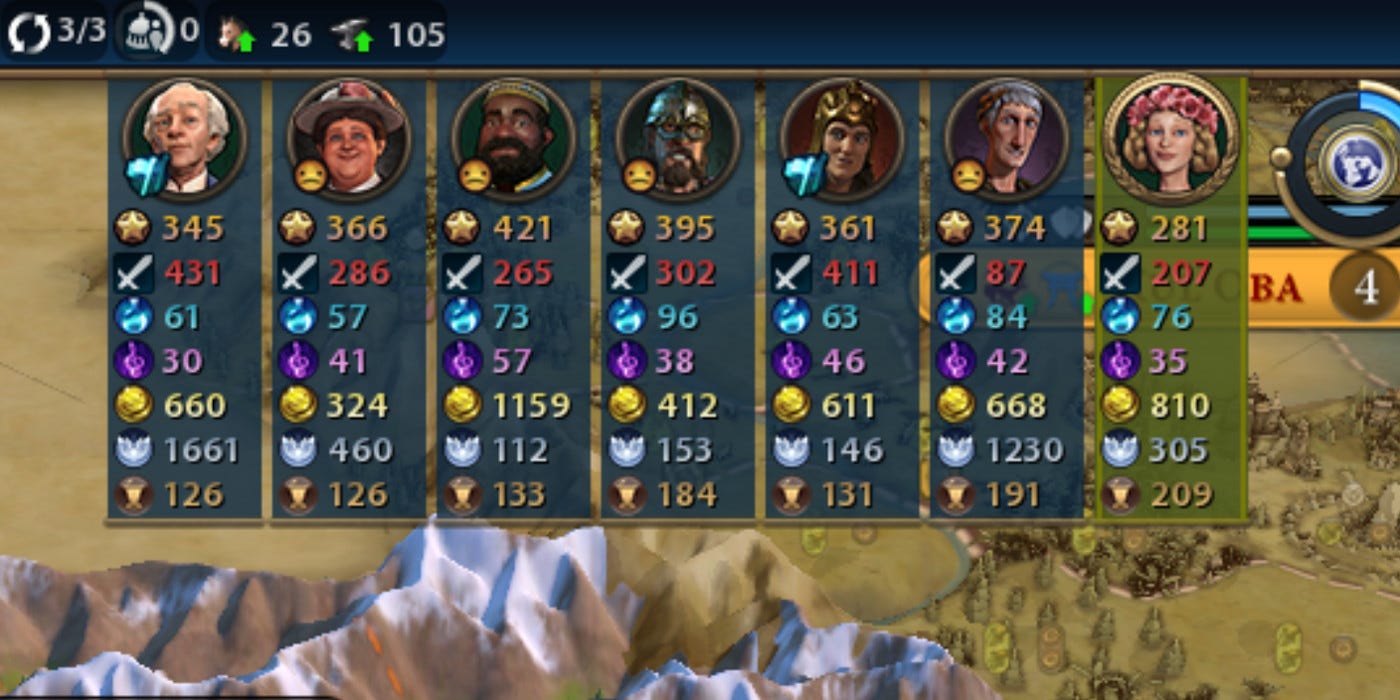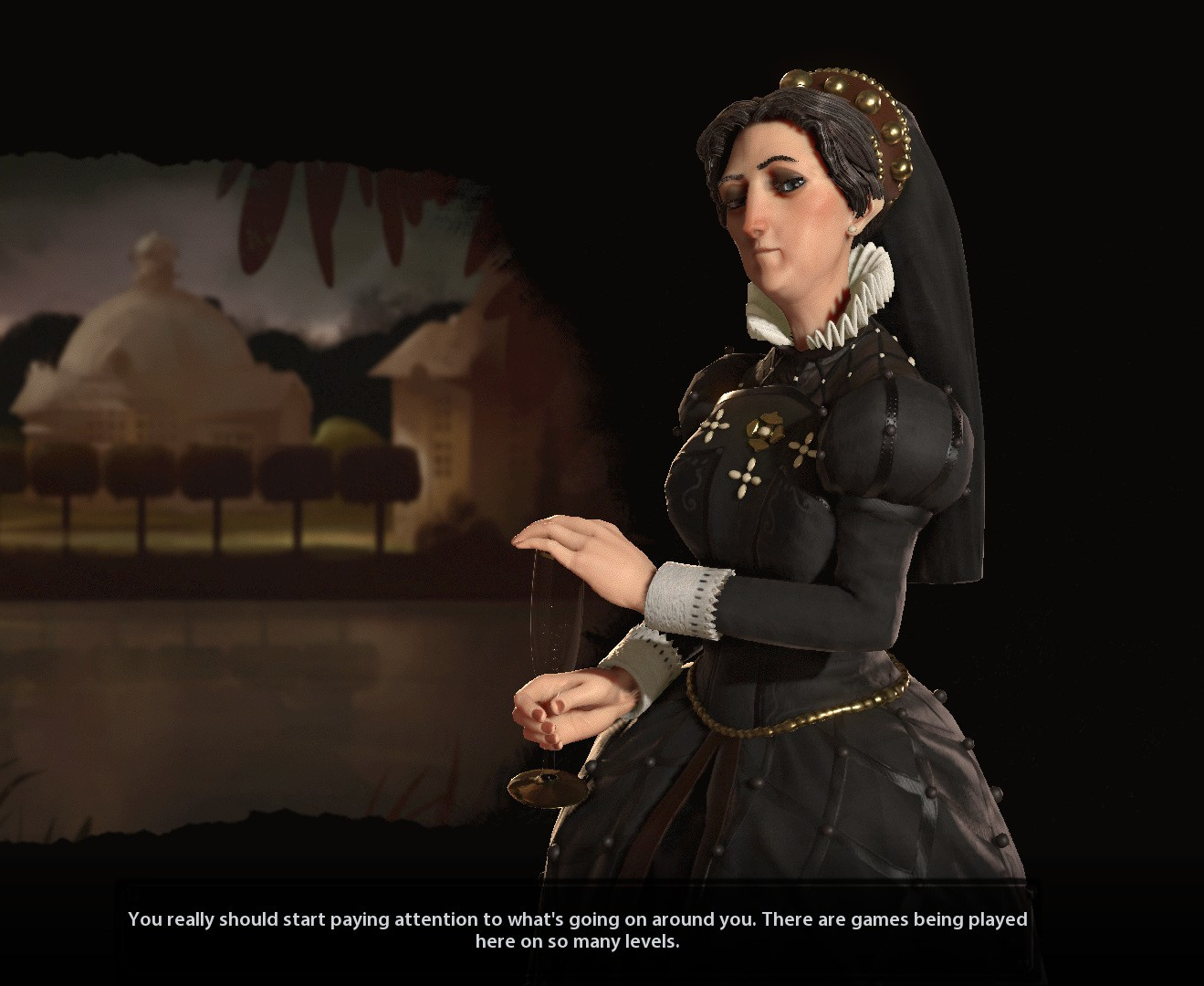[This post is part of a larger strategy guide for Civilization 6]
Information is the foundation of every decision you make. Most of the time, information is how you even know there's a decision boundary in the first place. To play civ, you need to constantly collect up to date information.
Luckily, the game makes it fairly easy to access a lot of information, if you know where to look.
Any map tiles you previously explored, but don't have units near, will remain in a fog of war. Civ has a much more permissive fog of war than many other games — not only do you retain knowledge of the terrain, but you can also see new and in progress infrastructure, including districts, strategic resource improvements, and wonders. At the beginning of the game, you should explore a lot (even paying for open borders), because that information is vital later on1.
Player ribbons contain incredibly useful information about how many resources per turn your opponents are generating, which in turn helps you understand if you are behind and how far. It also includes a military score. While military score isn't a perfect heuristic of someone's intentions, a sharp rise in military score often means an imminent attack.
The trade screen can be a useful way of figuring out an opponent's coin per turn. It is also useful for determining what military units an opponent has access to. If you think your opponent might be building nukes, check their trade screen each turn and see how much uranium they have to trade; if it's going down, they're probably building something dangerous!
If you want to get a sense of how many districts an opponent has but don't have visibility over their territory, check out the great person screen. You can often work backwards from someone's great person point generation to a rough estimate of their infrastructure.
Pay attention to the sounds in the game. When an opponent takes over an opposing city anywhere else in the world, you'll hear a characteristic "city defeated" sound.
This is a slightly niche example of using the fog of war to your advantage, but it's worth calling out in a separate bullet: when an opponent is running a space-exploration city project (e.g. satellites, moon landing, mars expedition, etc.) you can actually see a tiny rocket being prepped on the launch pad of the spaceport. This can be super useful when determining where to spend spies or military units if reaching the end of the space race.
In addition to the above, you should of course be using spies, scouts, religious units (which get open borders for everyone for free!), alliances, and city state suzerains to get full visibility around critical locations. For example, if you know an opponent's city is at a critical choke point leading to your empire, parking a spy there to keep an eye on troop movements can give you enough warning to turn a surprise war into an ambush.
Finally, though this is a bit silly, sometimes it's worth just asking the other players what they are up to. In a friendly, chatty game, we'll often share information about which civ we are playing, who else we’ve met in the game, where we are located, how many cities we have, how we might vote in a world congress, and so on.
Eventually information collection should become second nature. But while you are still learning, a good place to pause and take stock is before entering any races. You can often get a pretty good sense of your chances of winning a race just by taking a look at what else is happening in the game around you.
This is obviously supremely helpful if you're trying to decide whether to start building a wonder of your own. In fact, before building any wonder, you should always go to the map search feature on the bottom left to see if anyone else is already building it.






